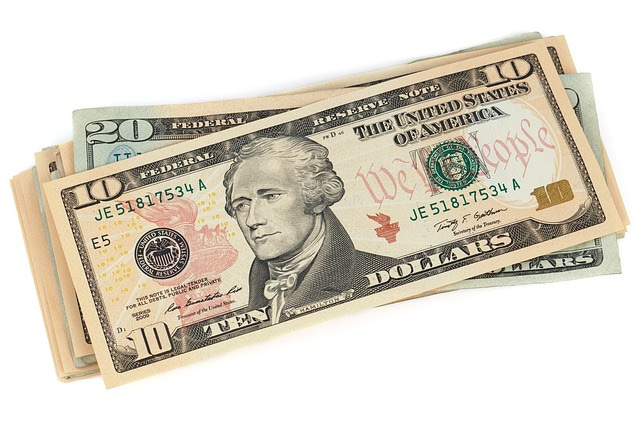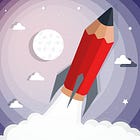Find Your Genre. Giveaway Edition
Step one to writing success is knowing your genre to find your audience.
Women’s Fiction Day Giveaway
June 8th is Women’s Fiction Day, and in celebration of this genre, I’m joining with the Women’s Fiction Writers Association (WFWA) and giving away two $25 egift certificates to Bookshop.org. No purchase is necessary to win.
From now until June 8, simply comment here with “enter me” along with your name and email.
Or, subscribe and you’ll automatically be entered.
What is Genre and Why Does it Matter?
Genre refers to how an artistic work is categorized. Genre is a way to describe, what type of “thing” you are creating. When you recommend a romcom movie or a modern art museum you’re describing a category of movie or museum that is likely understood. Taking it deeper, the recent movie “All Quiet on the Western Front” is a tear jerker. “The Texas Chainsaw Massacre” is a slasher movie. Those are genres (well sub genres) but you understand immediately the type of film and if you would enjoy them.
Genre can be applied to all creative work. Here are some examples and helpful research links if you want to explore more.
Music -folk, country, rock, jazz, pop, funk, hip hop, etc.
Film - noir, rom com, horror, sci-fi, etc.
TV - reality, news, sitcom, dramedy, soap opera, etc.
Styles of art - Impressionism, Cubism, pop, modern, etc.
Writing - I made cool chart. Keep reading.
But, for now, let’s discuss writing.
Your Writing Genre Matters for Many Reasons -But, Mostly Sales!
Genre defines specific elements (beats) that a story must have. Your genre tells readers what they can expect in a story. Promote the wrong genre and you’ll have a hard time finding your readers.
Simple Examples:
Romance has two characters meeting, attraction, break-up, happily ever after
Mystery has a crime or a problem, clues, an obstruction, and a solution
Horror evokes a sense of dread, suspense, violence, and the sometimes the supernatural
Police procedurals must have police. Medical dramas must have doctors
If your story has a protagonist hunting a three-legged alien with acid saliva, don’t call it a romance even if there are two characters in a relationship. The romance loving audience will pelt you with negative reviews.
If you want to write in a specific genre, your readers will expect a particular type of plot. Of course, you can mix genres, a horror mystery or a YA historical but we’ll get there in a minute.
If you attempt to sell a romcom to a publisher or journal soliciting literary fiction, you’ll be rejected. If you pitch an agent only accepting children’s stories your self-help guide to gardening, you’ll be rejected.
Understanding your genre is a short cut to publication.
What if you don’t know your story’s genre ?
You can write in as many different genres as you want. You can even mix genres. However, you should have one overarching genre for each work you create. Here is an interesting list from the Genre Dictionary.
You can also cross-list your stories. For example in my forthcoming debut novel, Where the Pelicans Roost (yes, I’m planning on bringing it up as much as possible) I can cross list my genres.
Women’s Fiction: layered stories where the emotional decisions of the protagonist move the plot, and the character is somehow changed at the end.
Upmarket Fiction: also called book club fiction. A story that is not quite literary but has deep points for discussion and a complex set of issues and plot and setting.
Commercial Fiction: a story that has wide-ranging appeal.
Ecolit: a story that encompasses elements of the environment and natural world.
However, women’s fiction is my ONE overarching genre. I found an agent soliciting women’s fiction. She sold my story to a publisher seeking women’s fiction.
The chart below features 30 common genres, but that is just the beginning.
The Book Industry Study Group (BISG) is a membership organization that organizes and assigns hundreds of potential categories to books. “(BISG) is… made up of a diverse slate of publishers, manufacturers, wholesalers & distributors, libraries, retailers and industry partners.” The BISG assigns numbers (codes) to books and this is how they are placed on the shelves of retailers and libraries.
I sit in on a monthly BISG meeting where experts in different genres discuss categories. Recently, there was an intense discussion of Manga titles and that Manhwa, the Korean expression of this style needed its own code due to its popularity, as did the Chinese style called Manhua. However, these titles can also be classified in comics and graphic novels.
As an author, you don’t have to dig into BISG codes unless you are self-publishing and want to include multiple categories for marketing. I think it’s important to know that the industry takes story placement seriously. It’s all about sales and how to help readers find the stories they want to read. Or say you ask your bookseller for a recommendation of a children’s magical realism book, they will know where to look.
But…my story is about a lot of things. Everyone will like it.
I’ll break the news to you, not everyone will like your story. Defining your genre is the first step to finding the people who will like it.
Non-Fiction
Non-Fiction is easier to define as there is a clear distinction between a cookbook and a memoir. Though you could have a memoir about a chef that includes recipes or a travel guide. But it would still be a memoir. I found this nice Reedsy Blog on non-fiction genres.
Fiction genres trip up writers. Maybe we just don’t want to commit or maybe we don’t want to admit what we’re writing (hmm…).
The best way to understand genre and to define the genre of your story is to read in a variety of genres.
Back to Women’s Fiction
When I began writing novels, I didn’t have a sense of my genre. I wasn’t writing romances. I was writing stories about issues and people with problems and messy relationships - like actual life. My characters didn’t always get the true love at the end. Sometimes they died.
I was passionate about telling stories that included important aspects of the natural world, especially the ocean. Commercial fiction? Yes, I would consider my books commercial. But…they are not always light hearted, though are they are balanced with levity and when I can pull it off, humor. I thought I would write literary fiction, but no. As I crossed one genre off my list after another, I was stumped. Surely my type of story had to have a genre. I was reading books like my own. That’s when I discovered women’s fiction and then The Women’s Fiction Writing Association (WFWA). I share many of the same interests and passions as so many of their members. I found my people, a supportive community, and it has led me directly on my path to publication.
What Does it Mean?
Women’s fiction is a problematic term. It is not only stories about women or stories for women - though women figure prominently and women read the majority of books in the United States. (that’s one of those interesting dinner party conversation starters). I like to say it’s the genre not the gender.
The defining beats of the genre are layered stories where the protagonist’s emotional journey moves the story forward and the protagonist is somehow different at the end of the story. Additionally, the character needs to be 18 or older. A younger character would fall into the Young Adult category. I’ll be covering that in a future edition.
In a thriller or mystery, the protagonist is reacting to events but he or she is the same person at the end. Lee Child’s Jack Reacher is a good example. The character has evolved from book to book, but Jack is the same character and that’s what readers expect - that’s the genre!
Women’s fiction is flexible allowing for threads of romance, mystery, suspense, fantasy, sci-fi, dystopian, almost anything.
I proudly served four years as the Vice President of Communications for the Women’s Fiction Writers association (WFWA). I’m currently the Executive Editor of the association’s amazing magazine, WriteOn!
Fun fact! Five years ago, I came up with the idea for Women’s Fiction Day. A day (now a week) of activities to celebrate this genre and the authors who create these rich stories. Visit the WFWA website and snag some free books on June 8th.
Find a writing community! Joining one in your genre is even better. Here is a link to an earlier newsletter with a chart of genre communities.
Thanks for making it to the end. I hope I’ve answered some questions about finding your genre and why it’s important.








What an exciting week! Enter me! julia@juliadaily.com
Enter me! Deonna Kay. 214-912-5217. Deonnakaybooks@gmail.com